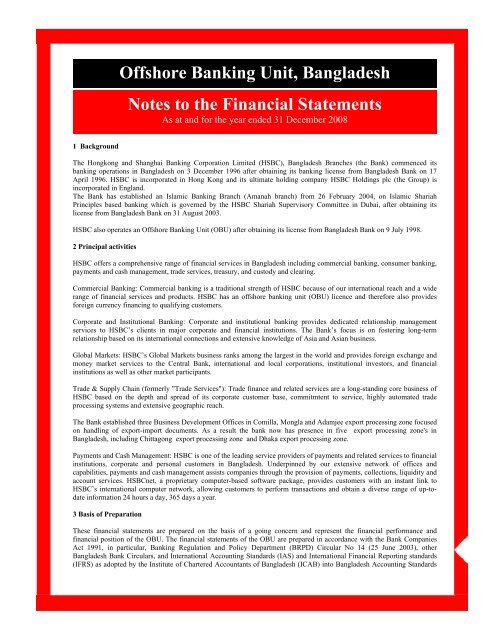Offshore Company Formation : A Comprehensive Overview for Entrepreneurs
Offshore Company Formation : A Comprehensive Overview for Entrepreneurs
Blog Article
Understanding the Lawful Implications of Offshore Business Formation

Lawful Framework for Offshore Companies
When developing an overseas firm, understanding the lawful framework governing its development and operation is essential for compliance and threat management. Offshore firms run under certain regulations and laws that vary from those of onshore entities. The lawful framework for overseas companies typically consists of provisions for company registration, shareholder needs, supervisor duties, and tax obligation obligations.
Firm enrollment entails submitting the required documentation to the appropriate regulative authorities in the chosen jurisdiction. This process often calls for thorough information concerning the firm's structure, shareholders, and desired activities. In addition, offshore companies should follow details investor demands, such as preserving a register of investors and maintaining this details up to date.
Supervisors of offshore business have fiduciary duties to act in the finest interests of the business and its investors. By adhering to the lawful structure governing overseas firms, companies can run with confidence while lessening lawful risks.


Tax Obligation Ramifications and Laws
When considering the facility and procedure of an offshore firm,Comprehending the tax effects and guidelines is critical. Tax obligations play a vital function in the decision-making procedure of whether to establish an offshore entity. Offshore business are frequently based on beneficial tax obligation regimes, providing lowered or absolutely no tax rates on foreign-earned income. Nonetheless, it is vital to browse these tax obligation benefits carefully to make sure compliance with both the regulations of the offshore territory and the home nation.
Tax policies for overseas firms vary substantially across jurisdictions, and it is critical to seek expert recommendations to comprehend the details demands and commitments. Failing to follow tax obligation laws can cause severe effects, consisting of significant penalties, reputational damages, and even legal activity. In addition, overseas jurisdictions might have reporting commitments to reveal financial details to relevant authorities. As a result, comprehensive expertise of tax obligation legislations and policies, in addition to proper tax planning, are necessary to ensure the successful and certified procedure of an offshore company.
Conformity Demands and Reporting
Making sure compliance with regulatory requirements and keeping accurate coverage are vital elements of handling an overseas firm effectively and transparently. Offshore firms must abide by the regulations and policies of both the territory in which they are incorporated and any kind of various other relevant jurisdictions where they conduct organization. Conformity needs commonly include submitting annual returns, monetary declarations, and tax obligation records with the suitable authorities. Failure to fulfill these responsibilities can lead to fines, penalties, and even the cancellation of the business's enrollment.
Along with governing compliance, overseas business are usually based on reporting needs to make certain openness and prevent unlawful tasks such as cash laundering or tax obligation evasion. Reporting responsibilities may entail disclosing details regarding the firm's possession structure, economic activities, and recipients. This information might require to be shown regulative bodies, tax obligation authorities, or other governmental companies, depending upon the jurisdiction.
Keeping accurate and thorough documents is vital for showing compliance and reacting to any queries or audits successfully. Offshore business ought to carry out durable coverage devices and interior controls to make certain that they meet all lawful requirements and operate with integrity.
Asset Protection and Privacy Laws
In the world of overseas company development, a vital consideration is the interaction between possession protection approaches and privacy regulations. Offshore territories typically offer enhanced property security devices that protect possessions from prospective risks such as lawsuits, financial institutions, or political instability in the home nation. By structuring possessions within an offshore company, individuals can secure their wide range and diversify their holdings throughout various legal frameworks. Personal privacy go to this web-site regulations in offshore jurisdictions add to maintaining privacy and privacy for firm owners. These regulations restrict the disclosure of sensitive details, making it testing for exterior parties to accessibility details regarding the business's procedures or possession structure. This degree of personal privacy can be helpful for individuals looking for to safeguard their assets from public examination or rivals. Nevertheless, it is essential for people to browse these legislations fairly and transparently, guaranteeing compliance with both offshore laws and the legal see this here requirements of their home nation. Eventually, comprehending the elaborate partnership between possession protection methods and personal privacy regulations is vital when thinking about overseas company formation.
Challenges and risks to Take into consideration
When venturing right into offshore business development, prudent factor to consider of potential dangers and difficulties is vital for informed decision-making and critical planning. One considerable threat to think about is the possibility of raised examination from regulative authorities due to the regarded association of offshore entities with tax evasion and money laundering. This enhanced scrutiny can bring about comprehensive conformity needs and possible lawful ramifications otherwise properly addressed. In addition, political instability or changes in offshore jurisdictions can position a risk to the connection of operations and the defense of possessions held by the overseas firm.
Challenges may additionally emerge worrying the complexity of overseas business frameworks and the demand for experienced lawful and financial advice to navigate the elaborate regulatory frameworks of various territories (offshore company formation). Keeping conformity with varying worldwide legislations and policies, as well as possible language More hints obstacles and cultural distinctions, can better complicate the offshore business development process. It is critical to be knowledgeable about these risks and obstacles prior to waging offshore business formation to minimize potential challenges and make sure a legitimately sound and smooth establishment
Conclusion
In final thought, offshore company formation entails browsing complicated legal structures, tax effects, compliance demands, and privacy regulations. Comprehending these elements is crucial for minimizing risks and obstacles connected with overseas business procedures. It is essential for services and people taking into consideration overseas company development to seek specialist advice to ensure conformity with guidelines and to shield their possessions properly.
The legal framework for offshore companies usually consists of arrangements for business enrollment, investor requirements, director responsibilities, and tax obligation responsibilities.
Supervisors of overseas firms have fiduciary tasks to act in the ideal passions of the company and its investors. By sticking to the legal framework controling offshore companies, organizations can run with confidence while reducing lawful dangers.
Furthermore, political instability or adjustments in overseas jurisdictions can position a threat to the connection of operations and the protection of assets held by the overseas business. - offshore company formation
In final thought, offshore firm formation involves navigating complicated legal frameworks, tax ramifications, compliance needs, and personal privacy laws.
Report this page